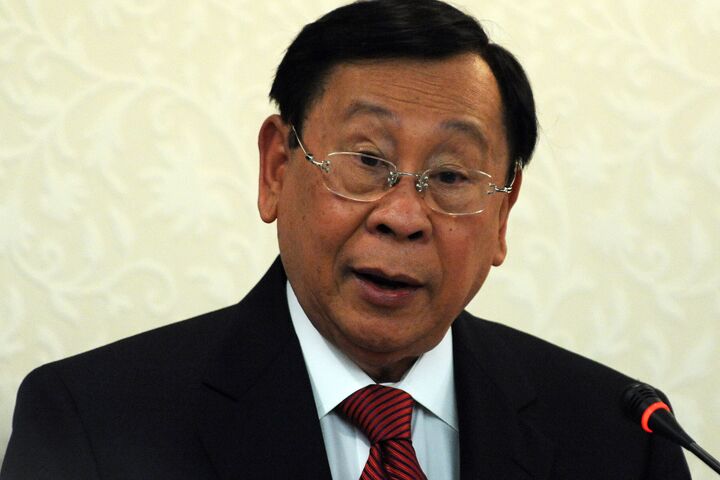
Manila Says Washington Should Keep Out of South China Sea Dispute
The United States should stay out of disputes between China and Southeast Asian nations over territories in the South China Sea, Filipino Foreign Secretary Alberto Romulo said Monday.
In recent months, China has become more aggressive in its claim on the entire 1.3 million square miles of the resource-rich South China Sea, which competes with claims by the Philippines, Vietnam, Malaysia, Brunei and Taiwan.
Last month, U.S. Secretary of State Hillary Clinton effectively rejected China’s blanket claims to sovereignty over the entire sea, declaring that Washington would get more involved in the disputes to guarantee free trade and open navigation throughout the region. Many countries of Southeast Asia, led by Vietnam, made clear that they welcome such a U.S. role to counter China’s muscle.
But the Philippines is not among them. In a stark deviation from historic allegiance, Manila said Washington should have no part in the territorial row.
Emphasizing that negotiations should be conducted exclusively by the Association of Southeast Asian Nations (asean) and China, Romulo said, “It’s asean and China. Can I make myself clear? It’s asean and China. Is that clear enough?”
The new government of Benigno Aquino is striving to find a balance between appeasing China, the region’s mushrooming economic power, and simultaneously working with its time-tested ally the U.S.
At present, the desire to be autonomous and in control of their foreign policies drives most smaller asean nations to cozy up to the U.S. in opposition to China. Despite the fact that they are China’s cultural cousins, these states view the U.S. as a benevolent, gentle giant that won’t encroach on their autonomy as China would. These nations cling to an illusion of American power that remains in the Pacific. Operating under the belief that they have a choice between allying with the U.S. and joining China, they edge toward the U.S. to support Washington’s quest of keeping Beijing in check. But Washington’s commitment to checking China’s power is negligible and waning. These nations are clinging to an illusion.
When a dominant nation comes to undisputed power in a region, the countries in its sphere of influence will, sooner or later, realize that it is in their best interests to ally themselves with the hegemon. If you can’t beat them, join them, they eventually decide.
Romulo’s comments indicate that Manila might see that Washington’s degree of commitment in Southeast Asia is low. The statement indicates that Manila may be preparing to abandon the sinking U.S. ship, to instead support Beijing’s ascendancy. Vietnam and the other nations of Southeast Asia will soon follow suit as they recognize the reality of Washington’s crumbling power.
In May 1968—seven years before the unconditional surrender of South Vietnam to communism—the Trumpet’s forerunner, the Plain Truth, stated, “Bible prophecy reveals that not even America, with all of her nuclear muscle, can prevent Southeast Asia from eventually being overrun by communism”—or, more accurately, from being drawn into a Chinese-Russian-dominated geopolitical bloc.
Expect the Philippines and other Southeast Asian nations to increasingly fall under China’s sway. As America’s influence in the region steadily wanes, China’s soft-power diplomacy and hard-power buildup will solidify the Asian nations into a global power. In the longer term, Asia’s unification points to the approach of the most hope-filled event in history! To understand more, read Russia and China in Prophecy.
